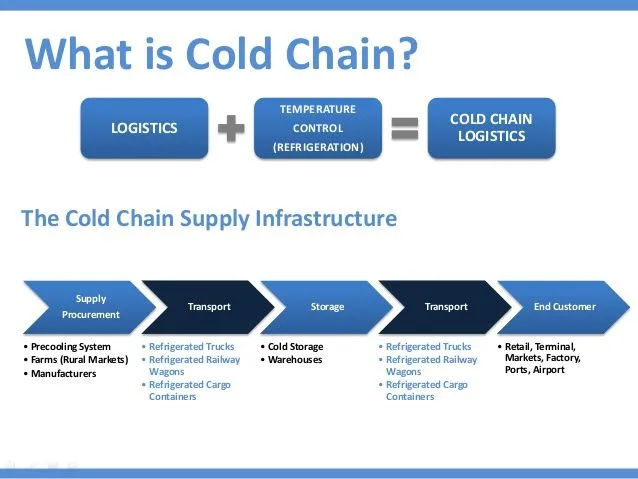How to Manage Cold Supply Chain in Logistics and Courier Service
In the fast-paced world of logistics, moving goods safely and efficiently is a top priority. While standard logistics focuses on transportation and storage, some industries require a specialized approach—this is where the cold chain comes into play. For businesses dealing with food, pharmaceuticals, and other temperature-sensitive items, a reliable cold chain is essential to maintain product quality and customer trust.
If you are looking for the best logistics company in Pune, it’s important to choose a service provider that not only offers fast delivery but also has expertise in managing cold chain logistics with precision.
What is a Cold Chain in Logistics?
A cold chain is a temperature-controlled supply chain designed to store, transport, and deliver perishable products under specific conditions. Unlike general courier deliveries, cold chain logistics involves:
-
Refrigerated storage facilities
-
Specialized reefer trucks and containers
-
Real-time monitoring technology
-
Skilled handling and compliance with safety standards
This system ensures that goods like fresh produce, dairy, frozen food, and medicines remain safe, effective, and fresh until they reach the customer.
Role of Cold Chain in Courier and Logistics Services
When customers search for a courier company in Pune or providers of domestic courier services in Pune, they often expect reliability and speed. But for industries such as healthcare and food supply, cold chain logistics adds an extra layer of responsibility.
-
Preserves product quality: Prevents spoilage and contamination.
-
Ensures compliance: Meets health and safety standards.
-
Reduces waste: Minimizes losses caused by temperature fluctuations.
-
Enhances customer satisfaction: On-time delivery of fresh, safe goods.

How to Manage Cold Supply Chain in Logistics and Courier Service
Efficient cold chain management requires a blend of infrastructure, technology, and expertise. Here’s how leading companies do it:
1. Temperature-Controlled Vehicles
Using refrigerated vans and reefer trucks ensures perishable goods stay in the right condition during transit.
2. Real-Time Monitoring
IoT-enabled sensors track temperature, humidity, and location, providing transparency to both the logistics provider and the customer.
3. Cold Storage Facilities
Before final delivery, products are stored in temperature-regulated warehouses to prevent spoilage.
4. Efficient Packaging
Thermal boxes, dry ice, and insulated containers maintain stable conditions throughout the journey.
5. Trained Workforce
Skilled staff ensure safe handling, quick loading, and proper delivery to avoid disruptions in the supply chain.
6. Route Optimization
For courier services, planning the fastest route is critical to reduce delays and protect sensitive products.
Challenges in Cold Chain Logistics
-
High infrastructure and maintenance costs
-
Equipment failures during transportation
-
Limited availability in remote areas
-
Strict government compliance regulations
Despite these challenges, companies offering domestic courier services in Pune are increasingly investing in cold chain solutions to meet rising demand from food, pharmaceutical, and e-commerce sectors.
Conclusion
The cold chain in supply chain logistics service is not just about storage or delivery—it’s about trust, safety, and quality. Whether it’s fresh vegetables, frozen food, or life-saving medicines, cold chain logistics ensures these products reach customers without losing their value.
If you are searching for the best logistics company in Pune or a reliable courier company in Pune that can handle sensitive shipments with care, always choose a provider with strong cold chain expertise. Modern logistics and domestic courier services in Pune are evolving rapidly, and businesses that adopt cold chain solutions will stand out as leaders in customer satisfaction and reliability.




